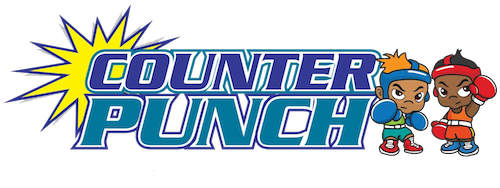![Mercedas Taaffe-Cooper [Clear background] 2](https://www.counterpunch.com.au/wp-content/uploads/2019/08/Mercedas-Taaffe-Cooper-Clear-background-2.png)
Hi, I'm Mercedas
(I answer to "Merc")
For the last 40+ years I have been honing and combining my skills as a:
- martial artist
- combat coach
- sports and exercise scientist
- registered psychologist
into an overarching, fun-filled and evidence-based program to guide young people toward achieving their undoubted potential.
I call it the CounterPunch method.
As a teenager I used to think I was the only one who thought the way I did and felt as disconnected as I did.
Many years later, I realised everyone has their own thoughts, feelings and insecurities just like I do.
For me, connecting was the biggest step toward becoming truly happy.
But I found connecting on an emotional level quite difficult – as many teenagers do.
The Difficulty That Teenagers Have With Their Emotions
Connecting on an emotional level is difficult as a teenager, especially if you’ve learned not to trust or haven’t developed an emotional vocabulary.
Articulating feelings can also be challenging. It’s hard to connect with the world around you if you haven’t learned to connect with yourself.
Without those two mechanisms in place, teenagers:
- struggle with anxiety, mood swings, stress and/or anger
- find it difficult to communicate effectively
- express their emotions in negative ways
- lack consistency and resilience with goals and tasks
Part of this comes with the critical development period that they're in – their brains are still rewiring themselves to connect the emotional part of the brain with their rational, decision-making centre.
The other part comes with learning how to recognise, manage and express emotions in a healthy manner – skills that if teenagers don't learn, can affect the quality of their lives in adulthood.
The Easiest Pathway To Feel Connected
The first time I connected with myself was through physical exercise, specifically boxing.
I found that it facilitated the connection between my mind and body, and ultimately connection with my spirit.
I didn't know how it worked at the time – all I knew was that exercise made me feel good.
My feelings and insecurities didn't have as much of an impact on me, and overall I felt a better sense of control over my own life.
Later, through my years studying a degree in psychology and working with young people as a therapist, I invariably found that the need to feel empowered, significant and competent was the biggest factor driving teenagers' behaviour.
And if they don't have healthy ways to help them fulfil that need, they'll find unhealthy ways to feel that way.
Combining these experiences together, I learned 2 important lessons:
- First, I learned I needed to connect with myself before I connect with the world.
- Second, the easiest way to make a connection with oneself is on a physical level. I’ve found this to be particularly true when connecting with young people.
Paying Forward What I've Learned To Future Generations
For years, my focus was only on physical achievement.
I was driven to challenge myself and achieve as much as I could. When I took up martial arts, I had a black belt within two years, I was a European champion in three years, and a World champion within four years. I trained to the point of addiction.
But despite all my achieving, I never really felt completely fulfilled.
Once I realised the potential of connecting mind and body, or connecting thinking with physiology, I became determined to learn as much as I could at an intellectual level.
I studied, among other subjects, Psychology, Martial Arts, Boxing, Sports and Exercise science, Energy healing and Reality Therapy/Choice Theory.
With all of this, it was perhaps inevitable I would become a psychologist, but my journey took a few scenic detours along the way.
However, coaching is something I’ve done for a lifetime, and it’s always been a deep passion of mine.
The outcome of my life-long learning is CounterPunch!
Learn More About CounterPunch
